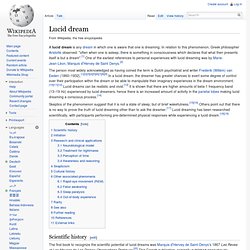

Lucid Dreaming. Polyphasic sleep. How to Naturally Reset Your Sleep Cycle in One Night. Wise Bread Picks Not eating for 12-16 hours can help people quickly reset their sleep-wake cycle, according to a study from the Harvard Medical School.

This discovery can drastically improve a person's ability to cope with jet lag or adjust to working late shifts. (See also: Tips for Sounder Sleep at Hotels) Scientists have long known that our circadian rhythm is regulated by our exposure to light. Now they have found a second "food clock" that takes over when we are hungry. The lead researcher Clifford Saper explains: The neat thing about this second clock is that it can override the main clock...and you should just flip into that new time zone in one day. It usually takes people a week to fully adjust to a new time zone or sleeping schedule. How Do You Use This Trick?
Simply stop eating during the 12-16 hour period before you want to be awake. Combined with other hacks to help you get more sleep and be more productive, you can quickly adjust to any time zone. Lucid dream. A lucid dream is any dream in which one is aware that one is dreaming.

In relation to this phenomenon, Greek philosopher Aristotle observed: "often when one is asleep, there is something in consciousness which declares that what then presents itself is but a dream".[1] One of the earliest references to personal experiences with lucid dreaming was by Marie-Jean-Léon, Marquis d'Hervey de Saint Denys.[2] Skeptics of the phenomenon suggest that it is not a state of sleep, but of brief wakefulness.[15][16] Others point out that there is no way to prove the truth of lucid dreaming other than to ask the dreamer.[17] Lucid dreaming has been researched scientifically, with participants performing pre-determined physical responses while experiencing a lucid dream.[18][19] Scientific history[edit] Philosopher Norman Malcolm's 1959 text Dreaming[22] had argued against the possibility of checking the accuracy of dream reports.
Hearne's results were not widely distributed. Initiation[edit] The Secrets Of Highly Efficient Napping. Sleep, Learning, and Memory. The Learning Process and Sleep Sleep, learning, and memory are complex phenomena that are not entirely understood.

However, animal and human studies suggest that the quantity and quality of sleep have a profound impact on learning and memory. Research suggests that sleep helps learning and memory in two distinct ways. First, a sleep-deprived person cannot focus attention optimally and therefore cannot learn efficiently. Second, sleep itself has a role in the consolidation of memory, which is essential for learning new information.
Although the exact mechanisms are not known, learning and memory are often described in terms of three functions. Each of these steps is necessary for proper memory function. Sleep researchers study the role of sleep in learning and memory formation in two ways. Sleep Stages and Types of Memory Different types of memories are formed in new learning situations. The Impact of Sleep Deprivation on Learning and Performance Open Questions Summary back to top. How Much Sleep Do You Really Need? Popular stories Cryptography Embedded in Stargate: Universe Hides A Security Lesson There's Not Much Point In Arguing About Moffat's Doctor Who Any More These Wasps Built Their Colony On A Window – And The View Is Incredible The Seven Wonders of the Solar System Our Ancestors Wore Babies Into Battle A Japanese city has its own, Police-approved Batman How Much Sleep Do You Really Need?

This Week on Outlander: Interview with a Sadist Here's the Hallucination You (and Everyone Else) Have Experienced.